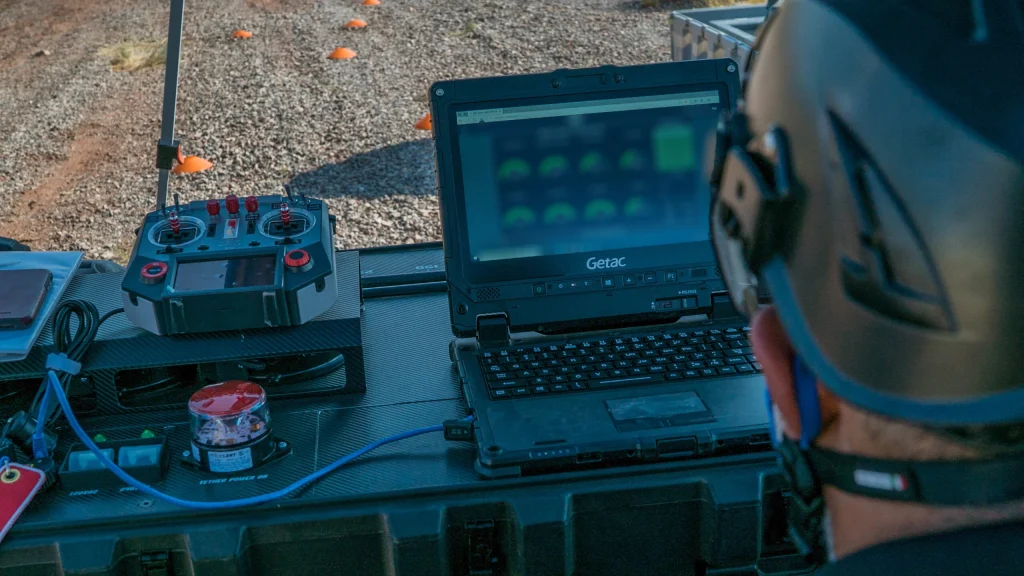In industries that demand high-performance equipment in extreme conditions, rugged laptops are critical. These devices are designed to withstand harsh environments, including extreme temperatures, dust, water exposure, and physical impacts. Professionals in fields such as military, construction, manufacturing, and emergency services often rely on these durable machines. But how do you know that a rugged laptop will stand up to the job? The answer lies in ISO and MIL-STD certifications. These certifications verify that the laptop has been rigorously tested for durability, making them trustworthy for demanding environments.

Rugged laptops are specifically designed to perform in environments where standard laptops would fail. They feature reinforced frames, shock absorbers, and sealed designs to protect against dust, water, and impact. Whether you’re on a construction site, in the military, or conducting research outdoors, rugged laptops are built to endure. However, it’s not enough to claim that a laptop is “rugged”; it must be backed by industry-standard certifications like MIL-STD, IP, and ISO standards. These certifications validate that the laptop has undergone and passed strict testing to ensure durability in real-world conditions.
In this article, we’ll explore the most important certifications for rugged laptops, including MIL-STD-810G, MIL-STD-810H, IP ratings, and ISO certifications. Understanding these certifications will help you choose the right rugged laptop for your needs.
Rugged laptops are specifically engineered for use in extreme environments. They are built with reinforced components to handle physical stress and are typically equipped with features such as:
However, the key factor that separates rugged laptops from standard ones is their certifications. These certifications, particularly MIL-STD and IP ratings, guarantee that the laptop has been tested to withstand tough environments.

One of the most common certifications for rugged laptops is the MIL-STD-810G standard. This military standard was created by the U.S. Department of Defense to test equipment for military use. Although initially designed for military gear, it is now widely used for rugged laptops and other commercial products.
Laptops with MIL-STD-810G certification are ideal for professionals working in military, construction, and industrial environments.
The MIL-STD-810H standard is an updated version of 810G and includes even more rigorous tests. This certification addresses additional factors such as:
The MIL-STD-810H certification is crucial for those working in more extreme environments, where weather conditions and physical stress are more intense and varied.
In addition to MIL-STD certifications, rugged laptops also often feature IP ratings, which measure the device’s ability to resist dust and water intrusion. These ratings are established by the International Electrotechnical Commission (IEC) under ISO/IEC 60529.
IP ratings ensure that your rugged laptop can handle exposure to dust and water, making it perfect for outdoor work in unpredictable weather conditions.
ISO 9001 certification doesn’t test the ruggedness of a laptop directly, but it ensures that the manufacturer or refurbisher follows strict quality management processes. Companies with ISO 9001 certification demonstrate that they consistently deliver products that meet customer and regulatory requirements.
For rugged laptops, ISO 9001 certification is especially important for refurbishing processes. It ensures that used or refurbished laptops meet high-quality standards and perform reliably in tough environments.
Rugged laptops are more than just tough-looking devices—they are built to withstand the harshest conditions and have certifications to prove it. Whether it’s the MIL-STD-810G and MIL-STD-810H military standards that test for durability against shocks, extreme temperatures, and humidity, or the IP ratings that guarantee dust and water resistance, these certifications ensure that your laptop will survive the rigors of demanding environments.
Furthermore, ISO 9001 certification assures that both new and refurbished rugged laptops are produced under strict quality control, providing long-term reliability and performance.
When shopping for a rugged laptop, understanding these certifications is crucial. They are your assurance that the device will function reliably, no matter the environment. So whether you work in the military, construction, emergency services, or research, a certified rugged laptop is an essential tool to ensure productivity and durability.
MIL-STD-810G is a military standard that tests rugged laptops for durability against environmental conditions such as shock, vibration, temperature extremes, humidity, and dust. Laptops with this certification have been rigorously tested to perform in challenging environments.
MIL-STD-810H is an updated version of 810G with more rigorous and comprehensive tests. It includes additional testing for rain, more precise temperature testing, and multi-axis shock testing, making it suitable for even more extreme environments.
IP ratings measure the level of protection a device has against dust and water. The first digit represents protection against solid particles (like dust), and the second digit represents protection against liquids (like water). The higher the numbers, the better the protection.
ISO 9001 doesn’t directly ensure ruggedness but guarantees the quality of the manufacturing and refurbishing process. For rugged laptops, it ensures that the product meets high standards of reliability and performance.
These certifications guarantee that the rugged laptop can operate in extreme conditions, ensuring that professionals like military personnel, field engineers, and construction workers have reliable tools that won’t fail when exposed to shock, water, dust, or temperature changes

Ulrik is an industry veteran with over two decades of expertise working with rugged computers and mobile barcode scanners. Brands include Panasonic, DELL, Getac, Zebra, and Honeywell/Intermec. He is known for his commitment to delivering products and solutions that increase operational efficiency. Dedicated to following new market trends and client satisfaction, Ulrik is a trusted advisor where rugged computers and mobile barcode scanners must be deployed.

Micro Nordic was founded in 2004 with the objective of offering customers fast, reliable and cost-efficient Rugged Mobile Product Solutions. We specialize in delivering current, End-of-Life and hard to find laptops, tablets and barcode scanners from leading manufacturers, such as PANASONIC, GETAC, DELL, ZEBRA & HONEYWELL.
We operate globally and can deliver bespoke turnkey solutions based on your requirements.

Micro Nordic ApS
c/o a. Hartrodt
11411 NW 107th Street
Suite 6
33178 Miami
USA